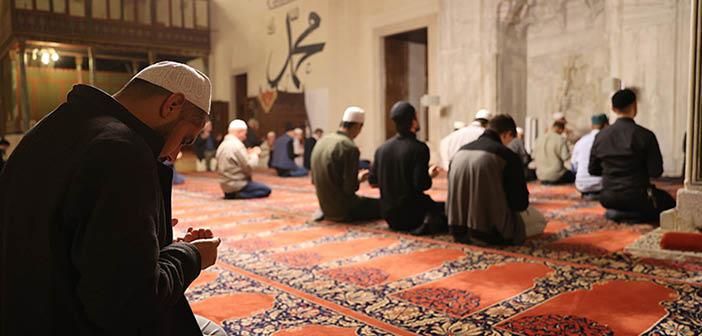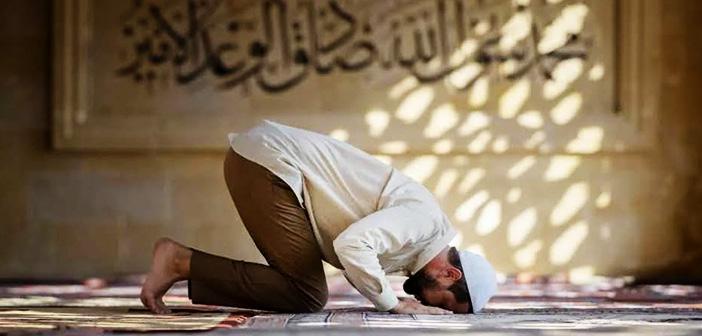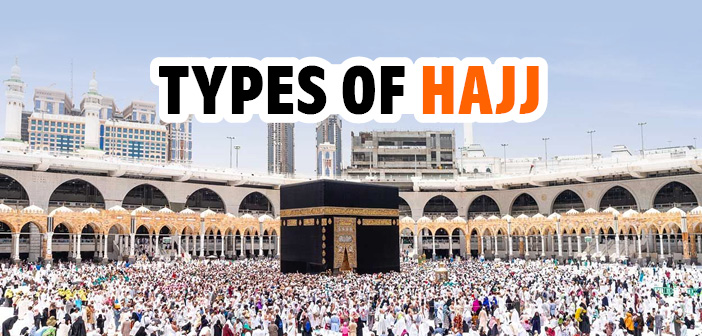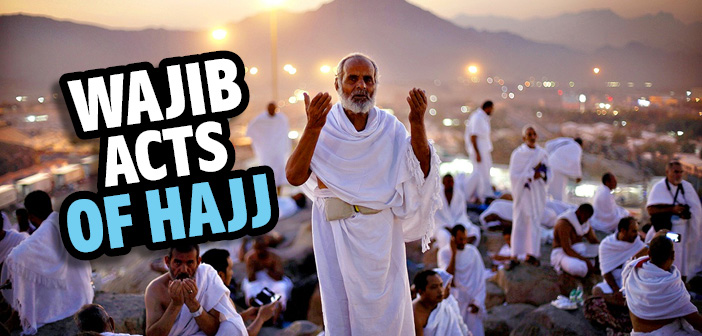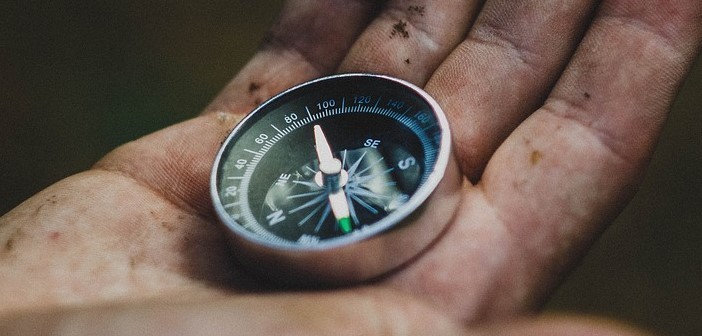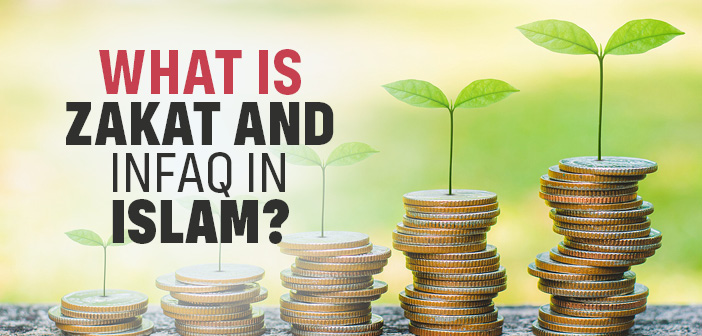
What is Zakat And Infaq in Islam?
What is zakat and infaq in Islam? What is the importance and virtue of zakat, charity and infaq in Islam? What does it mean? The understanding of zakat and infaq with verses and hadiths...
“And they feed, for the love of Allah, the indigent, the orphan, and the captive,-” (Insan, 16:8)
Man is the finest creation of Allah among the rest of creation. However, the natural or acquired differences between individuals such as race or nation or being strong or weak, healthy or sick, educated or illiterate, rich or poor do not change every essential human Allah-given value. They serve to establish an order and harmony in society. Through these differences people are able to benefit from each other in different ways.
In particular, the different financial states of poverty and richness, as two opposite realities, possess a significant place in the order of society. Allah has created a world where people, sometimes temporarily and sometimes permanently, become rich and poor in order to test them spiritually in different situations. Consequently, these two states possess a deep meaning and wisdom for those who would understand. Merely being rich is not a virtue as being poor is not a vice; they are only part of Allah’s Divine pre-determination (Allah’s distribution). They are the manifestations of Allah’s Wisdom. Allah the Almighty states in the Qur’an:
“We distribute among them their livelihood in the life of this world, and We have exalted some of them above others in degrees, that some of them may take service from others; and the Mercy of your Lord is better than what they amass. And were it not that mankind would have become one community (through love of riches), We might well have appointed, for those who disbelieve in the Beneficent, roofs of silver for their houses and stairs whereby to mount and for their houses doors and couches of silver whereon to recline. And ornaments of gold. Yet all that would have been but a provision of the life of the world- and the Hereafter with your Lord would have been for those who were Allah-fearing” (Zukhruf: 43:32-35)
Allah grants abundant sustenance, or gives it in scant measure, to whichever He wills of His creatures: for behold, Allah has full Knowledge of everything. (Ankabut:, 28:62)
As these verses inform us, the distribution of wealth is not the same for everybody but does this mean that this is an injustice? Since the responsibility to use wealth is according to one’s capacity, the answer is no. Those who have more wealth will have the burden of more responsibilities than those who have less and all will be judged accordingly. Thus, a certain dynamic equilibrium is made to function in society. Islam, in order to prevent human beings from slavishly working to amass wealth and a consequential tendency to become selfish, greedy and proud and to prevent the poor from developing negative feelings towards the rich such as jealousy or hatred, commanded the payment of Zakat. Through the payment from the total wealth one has had control for at least one year, a social balance combining justice, mutual respect and love between the poor and the rich is maintained. It should be borne in mind that neither the poor nor the rich have the knowledge of whether they are to permanently remain in the degree of poverty or richness they find themselves in at a particular time. The poor must not accept living off charity as a necessarily permanent condition of their life but must strive to acquire wealth while the rich must strive to spend it in a manner pleasing to Allah and not simply hoard it. It is also emphasized that whatever is spent for the sake of Allah will eventually be replaced either in this world or in the next. The role of the government must not be overlooked in helping to facilitate conditions to help people remove themselves from everything which keeps them in chronic poverty and also in preventing the rich from exploitation of the poor, misuse of their power and influence or unfair or illegal business practices. Just as incentives are given to help businessmen so also there should be programs for education, training, and basic health and social services.
Therefore, Zakat is one of the most essential duties in Islam relating to the rights one owes to others who are the beloved of Allah and His servants.
Allah the Almighty, with His Divine Wisdom and Knowledge tests his servants according to their resources. Allah will hold the rich responsible concerning how they have earned their wealth, whether it was from legal or illegal means, whether they paid the poor-due and other voluntary charity. For the rich, this command is a serious challenge to test whether or not they will fulfill their obligations towards the less fortunate members of society who need help for their basic needs. If they successfully pass this test, they will be highly rewarded in paradise.
“And spend of that wherewith We have provided you before death cometh unto one of you and he says: O my Sustainer! If only thou wouldst reprieve me for a little while I would give alms and be among the righteous. But Allah reprieves no soul when its term cometh, and Allah is informed of what ye do.” (Munafiqun, 63:10)
On the other hand, the poor are tested in a different way. Allah the Almighty, does not ask them to pay anything and drive them deeper into poverty. Their test is to be patient, not to complain without good reason or to revolt against society, taking from what others have rightfully earned, and to preserve their purity and uprightness. If they pass this test successfully they will be abundantly rewarded in the Hereafter and their suffering in the world will be replaced by eternal bliss and heavenly riches.
The commandment of paying the Zakat is mentioned in the Qur’an twenty seven times together with the establishment of the daily prayers (salât). This shows the significance of the commandment. Only in one place is the commandment of establishing prayers and paying alms mentioned separately but this time Allah the Almighty confirms that those who pray to Allah in true prayer, will naturally fulfill their obligations. In Islam, commandments are divided into two areas, huququllah, the rights we owe directly to Allah- like prayer and huququlibad, the rights we owe to others, like Zakat. We must spend out of the wealth we have been given and we must also spend of ourselves. They occupy the highest position in their categories. Although Islam separately evaluates the fulfillment of each commandment and the ignoring of one commandment does not affect the other ones, the case of alms-due is different. If a believer does not pay the alms due his prayers will not be accepted. The Prophet (J) says:
“If a believer prays but does not pay the alms his prayers have no value.” (Munavî, Kunûz al-haqâik, p.143)
Therefore, the first caliph of Islam, Abû Bakr considered those who rejected paying Zakat as apostates even though they accepted performing their prayers. He declared war against those who did not pay what is considered as the right of the poor over the rich. Allah the Almighty states in His Holy Qur’an:
“And in their wealth the beggar and the outcast had due share.” (Dhâriyât, 51:19)
If you pay your alms, you pay the rights of what you owe to the poor in your wealth. (Tirmidhi)
If the rich pay what is due to the poor, the rest of their wealth is made blessed for them. In other words, the wealth of the rich is purified from all sorts of harm. When passed to the poor and disadvantaged sections of the society, the rich can enjoy their wealth with peace of mind knowing that the poor have also been satisfied regarding their essential needs. The following verse confirms this reality:
“Take alms out of their property, you would cleanse them and purify them thereby, and pray for them; surely your prayer is a relief to them; and Allah is Hearing, Knowing.” (Tawba, 9:103)
The distribution of alms pleases the poor but it also benefits the rich more than anything else because they are thus blessed in both worlds. Zakat means “cleaning and purifying” and it cleans man from the diseases of the heart. It cleanses wealth from the rights of others and purifies it. As a matter of fact, this is also the role of the Prophets i.e. they purify people from spiritual diseases.
In addition, alms given with a willing and generous heart helps to establish a bond of love and sincerity between the rich and the poor. From very ancient times there has been a continuous conflict between the poor and the rich. Generally, the rich looked upon the poor as worthless and ignorant people, they despised and judged the poor simply for their poverty. On the other hand, the poor maintained an anger and jealousy towards the rich. This kind of relationship is still the prevalent one in most societies of the world. However, all the Divinely revealed religions contain commandments to look after others and to show mercy and love towards the weak. If today, every rich person paid his obligatory alms, there would not be any needy person in society. We should bear in mind that this is the minimum requirement that a Muslims should pay, and that there is no limit to the amount of voluntary charity (sadaqat)a believer who possesses a perfect faith in Allah can give. At the time of Umar b. Abdulaziz, the Umayyad caliph, the governors could not find enough poor people to distribute the alms due to, since there were not enough poor people around. They asked the caliph what to do with the alms the state had collected from the rich. All the rich people had paid their rightful amount of alms. Consequently, this time period in the history of Islam has been accepted as the brightest period after the first four caliphs of Islam.
Hadrat Jalaladdin Rumi describes the significance of helping the poor in a very fascinating way:
Though it (the poor) is one filled with knowledge, it hath a house filled with smoke (poverty and need): open a window for it by listening (to his problems). (Masnawî, III. 485)
Hence, Islam treats the social wounds of society emanating from poverty and richness. On the other hand, non-Islamic systems have been unable to achieve any comprehensive or consistent success in handling this delicate problem. They either went to the extreme of denying or severely limiting the right of personal wealth and private ownership or they idolized acquiring personal wealth. They either denied the right of the poor to ask help from the rich or they completely left it to them to ask help from others, leading to a chronic life of begging. Islam handled this problem through admonishing the rich about the benefits of giving in charity, secretly and openly and through encouraging the poor to be patient and not to be a permanent burden on society but rather to do their best to earn their livelihood.
In reality, obligatory alms giving is one of the highest values that Islam has introduced to humanity. The difficulties and sufferings of the poor, the destitute, the orphans, and the widows are lessened through the institution of Zakat and other kinds of charity. It is also through Islam that slaves were enabled to become free. Slaves were able to buy back their freedom from the sources of charity. Freeing slaves without receiving any payment was also encouraged as a worthy act and for remission of sins.
In addition to alleviating poverty Zakat has another very important function. It prevents people from drowning in the swamp of unending payments of interest. If needy people are not helped they will be forced to borrow at high rates of interest. Borrowing seems easy at first but in reality it is nothing but a means of taking advantage of the poor. Through giving, the poor do not need to borrow for essentials. Those who charge interest on loans to those in desperate conditions take advantage of the situation whereas those who distribute alms to the poor in fact share their burden. They do not expect any worldly return from the poor; they only help them in order to attain the pleasure of Allah the Almighty. Without having any collateral to offer a bank, the poor are forced to turn to loan companies. When the loan cannot be fully paid in a short time the amount of the original loan doubles and triples until only the interest on it can be paid and the borrower becomes permanently indebted.
A greedy person never feels satisfied with the amount of wealth he gathers; the more he gets the more his greediness increases. On the other hand, those who give alms do not develop greed, they are contented with little from worldly things. The people who devour interest develop an immense greed for wealth and they do not mind destroying the lives of others to increase their wealth. It is possible to see examples of such people in the big trade centers of the world. The following verse on the other hand advises us not to use interest in business transactions:
“Allah will deprive usury of all blessing, but will give increase for deeds of charity: For He loveth not creatures ungrateful and wicked.” (Baqarah, 2:276)
Those who are involved with interest in their businesses lose the blessing of Allah and as a result they become bankrupt in the Hereafter. This bankruptcy can happen in this world and those who made great fortunes out of interest and other illegal ways lose them in a short time. Either a calamity, a disease or wasteful or mistaken spending consumes their wealth in a short time. The harm of interest is not only personal, it also has a destructive effect on the social fabric of the society. Through interest gained without gainful work or productive investment, the rich become richer and the poor become even poorer. It destroys the unity of the society. Because of these destructive results such people lose the chance to acquire spiritual wealth as well as eternal bliss.
On the other hand, distribution of Zakat establishes social harmony and order and will bring blessings in this world as well as in the Hereafter. The following incident is a good example of such generosity and social solidarity:
One day a beggar asked Hadrat Ali for some money. Ali (may Allah be pleased with him) asked his sons Hadrat Hassan and Hadrat Hussein to bring some golden coins from home.
The boys obtained them from their mother and gave them to Hadrat Ali who gave them all to the beggar even though they needed this money to buy flour.
Hadrat Ali was just entering his house and at that moment someone who wanted to sell his camel approached Ali saying him: “Take this camel for 140 dirhams and pay later, leaving the camel with him.” After a very short time, another person came, and bought the camel from Ali for 200 dirhams, paying in cash.
Hadrat Ali paid his 140 dirham debt to the person from whom he had bought the camel and gave the rest of the money to his wife, Hadhrat Fatimah, and told her that this is the reward that is promised by Allah through His Prophet (J); we gave six dirhams and Allah the Almighty paid us back ten fold and he recited the following verse:
“Whoso bringeth a good deed will receive tenfold the like thereof,” (An’am, 160)
In addition to this good news, the following verse states that giving the poor-due and charity will open the doors of mercy and prevent calamities:
“Is there any Reward for Good - other than Good?” (Rahman, 55:60)
The following incident is a good example of the great benefits of giving charity:
Once, several thieves forced their way into a shop and the owner, an old man had no choice but to give up all the money from his safe. However, before he opened his safe, one of the robbers remembered the shopkeeper. He turned to his friends holding his gun and said: “You cannot rob this man unless you kill me first.”
His friends were very surprised about this unexpected behavior and asked:
“We have robbed many shops so far and what is so different about this person that we should not rob him as well? Leave us and let us do the job once more”!
He answered:
“Do you know who this old man is? He is the one who helped my family when I was spending my time drinking, gambling and neglecting my family. He looked after my family like a merciful father and financed the education of my children. Please do not insist on this and let us leave this man alone.”
As a result all the robbers apologized and left the shop without even taking a penny.
This is the example of how charity drives away evil.
The best example of helping the poor and solving their problems is witnessed in the life of the Prophet Muhammad (J). He wanted to make generosity an inseparable characteristic of every Muslim. Hence he stated: The giving hand is superior to the receiving hand (Bukhari, Zakat, 18).
He strongly praised the donators of charity in the following hadith: “There is no envy except in two cases: a person to whom Allah has given wealth and he spends it in the right way, and a person to whom Allah has given wisdom (i.e. religious knowledge) and he gives his decisions accordingly and teaches it to the others.” (Bukhari, Volume 2, Book 24, Number 490)
The following prayer is also a good example of how much he loved the poor and the weak members of society: “O my Lord! Enable me to live as the poor, sustain me as a poor person and resurrect me (on the Day of Judgment) among the poor.” (Tirmidhi, Zudh, 37)
He made his house like a refuge for the poor, dedicating some part of his house to the poor emigrants known as Muhâjirs (the emigrants).
In his hadith he states that the poor will enter Paradise forty years before the rich since they have no wealth for which to give account. (Tirmidhi, Kitâb al-Zuhd)
“The rich are in fact the poor (being little rewarded) on the Day of Resurrection except him to whom Allah has given wealth which he gives (in charity) to his right, left, front and back, and does good deeds with it.”
In this way Islam teaches that neither poverty nor richness is a virtue by their basic nature, the virtue lies in the way that a person behaves. A poor person can also contribute to the society very positively; hence he should be taken seriously. To this effect, the Prophet (J) states that if a poor person has no financial power to give charity, his good conduct and heartfelt sweet words will be considered as his charity. In this way Islam gives an equal chance of attaining rewards both for the rich and the poor. Money and wealth are not the highest values; the important thing is how one behaves in their absence and presence. One should behave like a human being with full dignity both in poverty and in richness. Neither of them is bad if a believer behaves properly in these situations. Of course, we are not suggesting that poverty is something good, what we are saying here is that when poverty is an unavoidable reality of life, a Muslim should behave with dignity while trying to free himself from it.
There is another important wisdom behind the duty of the poor-due and voluntary charity. It aims to prevent a monopoly of vast amounts of capital in the hands of a few, individuals. If wealth is in the hand of a few it usually results in the abuse of the poor. If richness is made an instrument of abuse and pride, a terrible consequence for the rich is unavoidable. Everyone in the society, the poor and the rich need each other spiritually or materially as part of the wisdom and plan of Allah, the Almighty. It should be known that everything including our personal possessions belong to Allah. Man only possesses things metaphorically not in reality. Allah the Almighty states in the Qur’an:
“O ye men! It is ye that have need of Allah: but Allah is the One Free of all wants, worthy of all praise.” (Fâtir, 35:15)
As this verse narrates, man possesses nothing, he is in need of Allah in all conditions even when he is rich. We are living in Allah’s domain and surviving with the sustenance He grants us. However, due to Allah’s wisdom, not known to us, man thinks he possesses things in a real sense. We forget that we are being tested through what we possess. Solomon(a.s.), who had a great wealth and a kingdom unequalled in human history, lost all his wealth all of a sudden. But Allah gave him back his kingdom, when he asked forgiveness from Allah. A friend of Allah therefore warns us saying that we should not run after sustenance but rather after the Sustainer.
Wealth is a trust given to man for a limited period in order to test him. He is not allowed to use it according to his inclination. Man should make use of his wealth as Almighty Allah, the Real Owner of wealth commands him. If it is used against the will of Allah, it causes man to become corrupt and commit injustice against his fellow human beings. Wealth has this enormous potential for harm, when it is loved without any restraint. Therefore, Allah the Almighty calls worldly wealth a test when it is idolized as an end in itself instead of a means. For such ill-favored people Allah states:
“They who hoard up gold and silver and spend it not in the way of Allah, unto them give tidings (O Muhammad) of a painful doom,” (Tauba, 9:34)
“On the day when it will (all) be heated in the fire of hell, and their foreheads and their flanks and their backs will be branded therewith (and it will be said unto them): Here is that which ye hoarded for yourselves. Now taste of what ye used to hoard.” (Tauba, 9:35)
The Prophet (J) also warns us against the potential dangers of miserliness and holding onto wealth selfishly, only for satisfying the ego.
There is never a day wherein the servants (of Allah) get up at morn, but are not visited by two angels. One of them says: O Allah, give him more who spends (for the sake of Allah), and the other says: O Allah, bring destruction to one who withholds. (Muslim Zakat, Book 005, Number 2205)
On the other hand, he praises those who spend for the good of the community saying that charity drags man to Paradise whereas miserliness drags him to Hell.
Generosity is a tree in Paradise whose branches extend to the world. Whoever catches a branch of it, it takes him to Paradise. Miserliness, on the other hand, is a tree in Hell whose branches are in the world. Whoever grabs it, it takes him to hell. (Bayhaki, Shuab al-Iman)
These are clear warnings from the Prophet (J) concerning the terrible end of the miserly people who do not fulfill their financial responsibilities towards society such as paying the alms due, and ‘ushr (ı.e, the commandment for farmers to pay one tenth of the harvest to the poor).
These verses and the hadiths confirm that when the love of wealth finds a place in the hearts of people they will steal the rights of the poor with their wealth. Faced with these clear Divine warnings, we should be very careful to fulfill our obligations towards the poor and to try to give more than two and half percent of our total wealth, which is the minimum requirement of Islam. The following verse gives us the guidance concerning the principles of charity:
“And they ask thee what they ought to spend. Say: that which is superfluous.” (Baqara, 2:219)
The companions of the Prophet (J) understood very well the significance of charity and they competed with each other in donating their wealth. When the Prophet (J) asked the help of his companions at the battle of Tabuk, Umar brought half of his wealth, thinking that he exceeded all the rest. However, Abu Bakr donated his entire wealth for Islam. When the Prophet (J) asked: “What did you leave for the needs of your family?” He answered: “I left Allah and His messenger (for their needs).”
The following incident shows the Sufi concept of charity. One day a faqih (Islamic jurist) asked the famous Sufi Shibli, in order to test his knowledge of Islamic law, the amount of Zakat that a Muslim must pay since at that time some scholars thought that Sufis were ignorant of Islamic law.
Shibli asked the faqih: “Do you want the answer according to the school of the faqihs (the scholars) or the faqirs (the Sufis)?”
The faqih said: “According to both.”
Shibli stated: “According to the faqihs a year induration in total must pass over wenlth before it is taxable. Thus, over 200 dirhams, you pay one fortieth which is 5 dirhams. However, according to the Sufis you give away the entire 200 dirhams and thank Allah that you have gotten rid of the responsibility (of the wealth).”
The faqih disliking his answer responded with sarcasm: “We have learned Islam from Muslim scholars (not from Sufis).”
Shibli on the other hand gave him an answer that shattered the prejudice of the faqih saying: “We have learned Islam from the close companion of the Prophet (J) (i.e. Abu Bakr) who put all his wealth at the disposal the Messenger of Allah and gave thanks to Allah (for ridding himself from the heavy responsibility) (Mektûb, 34, Üçüncü Yüzyyıl)”
The Prophet (J) led the way in giving charity, as he was the best example of the spirit of continuous giving. The following example from his life shows this very well. One day he had slaughtered a sheep for his family. They distributed most of the meat when the Prophet (J) asked his wife Aisha (may Allah be happy with her) how much was left from the sheep, she answered: “only the shoulder of the sheep remains” (the rest having been distributed). The Prophet (J) on the other hand understood this charitable act from a different perspective and said: “That means that except for the shoulder the rest of the sheep remains for us.” By this he (J) wanted to say that by giving most of the sheep for the needy we made it our real possession in the Hereafter to benefit from the eternal rewards given by Allah. On the other hand, the part we kept for our own consumption will only satisfy our hunger for a short time and that its usefulness will not extend to the Hereafter. When compared to its use in the Hereafter, the short-lived satisfaction is like a waste.
If he had some money at home, he could not sleep without first giving it away as charity due to his high spiritual level. However, he did not command this level of charity to the general body of Muslims, and he directed them to be balanced and asked them to give according to their capacities. For example, although he accepted all the wealth of Abu Bakr he advised another companion of his to give some of his wealth and to keep the rest for his own use. (R.M. Sâmî, Tebük Seferi, p.66)
In other words, Islam does not require people to give up all their wealth; it only encourages them to give according to their spiritual and material capacities after fulfilling the obligatory ones. However, some of the companions like Abu Dhar deduced from the example of the Prophet (J) that it is illegal to save money for the future without using it for the good of the community.
Abdurrahman b. Awf was another good example that followed the high example of the Prophet (J). He would feed the poor when he himself was hungry. He would not mind the difficulties that he would face but on the other hand would strive to comfort others and remove their difficulties. The companions had adorned their hearts with the feeling that the wealth they possessed was only a trust given to them by Allah.
In short, those who desire to reach eternal bliss should know that they are not the real owners of their worldly possessions but rather their keeper on behalf of Allah, the real Owner, and one day they will give account for their management of His possessions. The following verse clearly reminds us of this fact:
Then on that day you shall most certainly be questioned about the gifts. (Takathur, 102:8)
Fully understanding the terrible consequences of this warning the Sufi mystics never forget that using halâl (religiously legal) things will be accounted for and harâm (religiously illegal) things are punishable.
Hence, the rich people who spend their money in order to please their ego and base desires are in fact carrying wood for their own fire. It is a great virtue to work hard and to acquire the necessities of life. However, the right action is to do that without putting the love of wealth in the heart by being able to give it in charity. Otherwise, richness is nothing but the work of a porter who carries things for others and cannot personally own them. Similarly, wealth that is not spent in the way of Allah will be passed to the heirs but the full responsibility will belong to the one who gathered it in the first place.
The intention behind earning wealth should be to attain the following level that the Prophet(J) directs us: “The best of mankind is the one who benefits them most” (tabarânî, Majmûat’u-Awsât, VI, 58) Money should be kept in the pocket not in the heart.
It should be known that the prayers of the poor and the helpless for the well being of the rich are a source of peace for them. This is a spiritual help from the poor to the rich. It should be emphasized once more that poverty is not a shame as it may be the manifestation of Allah’s mercy in the Hereafter.
The generous rich and the honorable poor who patiently face difficulties are equal in attaining Allah’s pleasure and attaining a high state of human perfection. On the other hand, Islam denounces the rich who behave with pride and vanity. In addition, the people who act like being poor in order to easily attain their needs without any trouble are also scorned by Islam. Therefore, the Prophet (J) took refuge in Allah from the mischief of richness and poverty: “O Allah, I seek refuge in Thee from the trial of Hell-Fire; and from the torment of Hell-Fire; and from the trial of the grave and torment of the grave; and from the evil of the trial of affluence and from the evil of the trial of poverty.” (Bukhari, Book 035, Number 6534)
Hence, whoever has the quality of contentment with what he has in trust and submission to the will of Allah, they are the real rich. If one wants to be really rich he should make others benefit from the worldly possessions and advantages he has. The intention of a good Muslim is to be a person who benefits society with his tongue and hands, i.e. to use all his limbs for the good of society.
Giving the poor-due and other acts of charity are in fact the expression of one’s thankfulness to Allah. In return Allah promises more favors to those who give thanks for His generosity.
Allah the Almighty states in the Qur’an: And when your Lord proclaimed:
“If ye give thanks, I will give you more; but if ye are thankless, lo! My punishment is terrible.” (Ibrâhîm, 14:7)
The Prophet (J) also confirmed this promise in the following Hadith:
“O son of Adam! Give to others as you too will be given to.” (Bukhari and Muslim)
Woe to those who say,” I have earned this wealth by my personal endeavor and look down upon the poor. They are preparing a terrible end for themselves like Qarun as narrated in the Qur’an”:
Qarun was a person who lived in the time of Moses (a.s.). In the beginning he was a good person. However, after he became very rich he could not protect the purity of his heart and lost his good characteristics. His wealth made him proud and arrogant. The Qur’an narrates the amount of his richness:
“Now Qarun was of Moses’ folk, but he oppressed them; and We gave him so much treasure that the stores thereof would verily have been a burden for a troop of mighty men. When his own folk said unto him: Exult not; lo! Allah loves not the exultant;” (Qasas: 28:76)
Qarun did not listen to his folk and closed his ears to their advice as well as to the advice of Moses (a.s.). When Moses (a.s.) asked him to pay the alms due of his wealth, he forget that he owed his success to Moses (a.s.) and said:
- Do you covet my wealth? I have earned it myself.
The Qur’an narrates the story as follows:
“But seek the abode of the Hereafter in that which Allah hath given thee and neglect not thy portion of the world, and be thou kind even as Allah hath been kind to thee, and seek not corruption in the earth; lo! Allah loveth not corrupters, He said: I have been given it only on account of knowledge I possess. Knew he not that Allah had destroyed already of the generations before him men who were mightier than him in strength and greater in respect of following? The guilty are not questioned of their sins.
Then went he forth before his people in his pomp. Those who were desirous of the life of the world said: Ah, would that we had the like of what hath been given unto Qarun! Lo! He is the lord of rare good fortune.
But those who had been given knowledge said: Woe unto you! The reward of Allah for him who believeth and doeth right is better, and only the steadfast will obtain it. So We caused the earth to swallow him and his dwelling-place. Then he had no host to help him against Allah, nor was he of those who can save themselves.
And those who had envied his position the day before began to say on the morrow: “Ah! it is indeed Allah Who enlarges the provision or restricts it, to any of His servants He pleases! Had it not been that Allah was gracious to us, He could have caused the earth to swallow us up! Ah! Those who reject Allah will assuredly never prosper.” (Al-Qasas, 28:77-82)
This is a terrible end for those who lose themselves in the love of wealth and forget the Hereafter. It is a tragic scene of how one lost the eternal bliss and richness due to ambition.
A poet descries the end of Qarun in the following lines:
What kind of richness is this O Qarun!
It caused you to be a beggar who is not shown mercy
Now in the Hereafter he lost all he possessed and became a beggar since the Hereafter is for those who served Allah piously, with sincerity, fearing His wrath. The following verse clearly explains the causes of why one loses the rewards in the Hereafter:
“That Home of the Hereafter We shall give to those who intend not high-handedness or mischief on earth: and the end is (best) for the righteous.” (Qasas, 28:83)
Jalaladdin Rumi (may Allah bless his secret) wonders the terrible end of the covetous people who go to the Hereafter batnkrupt.
For Rumi the worldly wealth should spent for the sake of Allah and man should not be its slave. Otherwise, man who is the slave of wealth will be the cause of man’s going to the Hereafter empty-handed.
According to Rumi, most people become slaves to worldly possessions. Like snakes they wait at the feet of wealth abasing themselves to a very low situation returning to the heavens empty-handed. If wealth is not spent in the way of Allah it has no value at all in the eyes of Rumi.
There is one example that is similar to the example of Qarun among the companions of the Prophet (J). There was a poor man named Thalabah among the companions who had a greed for wealth.
Hence, he came to the Prophet (J) to ask for his prayer that he become rich. The Prophet (J) politely refused this request by saying:
“Little amount of wealth for which you can give thanks to Allah is better than much wealth for which you cannot give enough thanks to Allah.”
Thalabah gave up his desire for sometime but later he felt an even greater urge to be rich and came back to the Prophet (J) repeating the same request: O Messenger of Allah! Please pray to Allah so that I become rich!
This time the Prophet (J) gave him the following answer:
“Am I not a good example for you? I swear by Allah that if I wished those mountains would turn into gold and silver, and they would follow me wherever I go, but I did not want it.”
Thalabah tried hard to give up this desire but could not get rid of the idea that if he is rich he will help the poor and receive great rewards from Allah.” The call of the ego had overpowered him hence he came back to the Prophet (J) and said:
I swear by Allah who sent you as a prophet, if he makes me rich I will protect the poor and fulfill my obligations.”
Upon this insistence the Prophet (J) prayed: “O my Lord! Please give the amount of wealth that Thalabah desires from You.”
Upon this prayer, Allah the Almighty gave great wealth to Thalabah. After a short while, he became very rich, his flocks of animals covered the hills of Madinah. However, Thalabah, who was called as the bird of the mosque thus far, started to neglect the mosque and came to the congregational prayers less than before. This continued until he was able to come to the mosque only on Fridays for the general congregational prayer, (which is the basic minimum for congregational prayer for a Muslim). This continued for a while but later he even forgot to come to the Friday prayers.
Having learned of this situation the Prophet (J) commented about him:
“What a pity for Thalabah, he destroyed himself (his pious life before becoming rich).”
The ignorance and heedlessness of Thalabah did not even stop here and continued until one day he said to the officials of the Prophet (J) who came to him in order to collect the alms-due from his wealth: (At that time the officials of the state used to collect the alms due in order to efficiently distribute it to the poor.)
“What you are doing is daytime robbery.”
In that way he did not even give the minimum amount of charity that was prescribed by the Qur’an. He had forgotten all the promises he made that he would spend much of his wealth for the poor and the needy. Hence he became a hypocrite, one whose words and deeds contradict each other.
The Qur’an describes the psychology of such people in the following verses:
“And there are those of them who made a covenant with Allah: If He gives us out of His grace, we will certainly give alms and we will certainly be of the good. Yet when He gave them of His bounty, they hoarded it and turned away, averse.” (Tawba, 9:75-76)
Thalabah, having ignored the advice of the Prophet (J) has lost the Divine bliss and became a miserable person in the Hereafter since he was deceived by the glamour of transient wealth. Hence he deserved to be poor eternally. When he died in great pity the advice of the Prophet (J) was ringing clearly in his ears:
“Little amount of wealth for which you can give thanks to Allah is better than much wealth for which you cannot give enough thanks to Allah.”
He did not heed the warnings of the Prophet (J) concerning the dangers of the wealth and died in a terrible situation in endless pain. He stupidly destroyed his eternal bliss in return for a short-lived happiness, of which he had thought of as an endless pleasure. (Ahmed Shahin, Tarihin Şeref Levhaları, p.27)
As understood from many life examples, man by his nature selfishly loves the riches of the world. The ego finds great satisfaction in gathering unlimited wealth. However, once one has been deceived by this satanic thought one will never be satisfied with what he attains. The following hadith succinctly explains the greedy nature of man:
If the son of Adam possessed two valleys of gold, he would covet the third Only earth can satisfy the hunger of the son of Adam...(Bukhari, Muslim)
With the increase in wealth there usually is a corresponding increase in greed to accumulate even more. Once a person is immersed in the love of worldly possessions then he/she loses all the humanistic values such as mercy, love and sacrifice. Giving charity becomes a very difficult thing with the ego saying: “Do not give now, wait until you become richer and then you can give even more in charity.”
Such people lose their spiritual balance as well as the order of their bodies. Since they do not use the chance given to them in this world they become the object of the following hadith:
“Those who said “I will do it tomorrow” have utterly lost.”
The above story of Thalabah is not only an example of man’s greedy nature it is also a good example for the terrible consequences of not respecting the good way of supplication and prayer. When the nature of one’s destiny is forced, then these kinds of terrible results are inevitable. The Prophet (J) although knowing the fate of this man, still prayed for Thalabah in order to show his community a living example of the dangers of greediness. Therefore, when we ask something from Allah the Almighty we should not trust our mind very much and should add to our supplication, “If it is acceptable in the Divine sphere of things and if it is for our good, please accept our supplication.” Otherwise, we can be damaged by not seeing the harm which is hidden in the seeming favor we desire. Supplication, like giving charity can change the conditional destiny (Qader-i Mukayyad) of man. However, we should not solely trust our rationality when we ask from Allah for the change of our destiny since it is not always good for us. Supplication is a favor from Allah and a commandment. However, when we fill our supplications with the desires of the ego and the rational mind, we should not insist that the contents of our supplications are correct and for our good. Hence we should add the phrase at the end of every supplication:
“O My Lord! Please fulfill my desire if it is for my good.”
Using wealth in accordance with the Divine commandments can eliminate the dangers of greed. This is an obligation for the well being of societies and individuals both in this life and in the Hereafter.
Source: Osman Nuri Topbaş, ISLAM SPIRIT AND FORM, Erkam Publications






